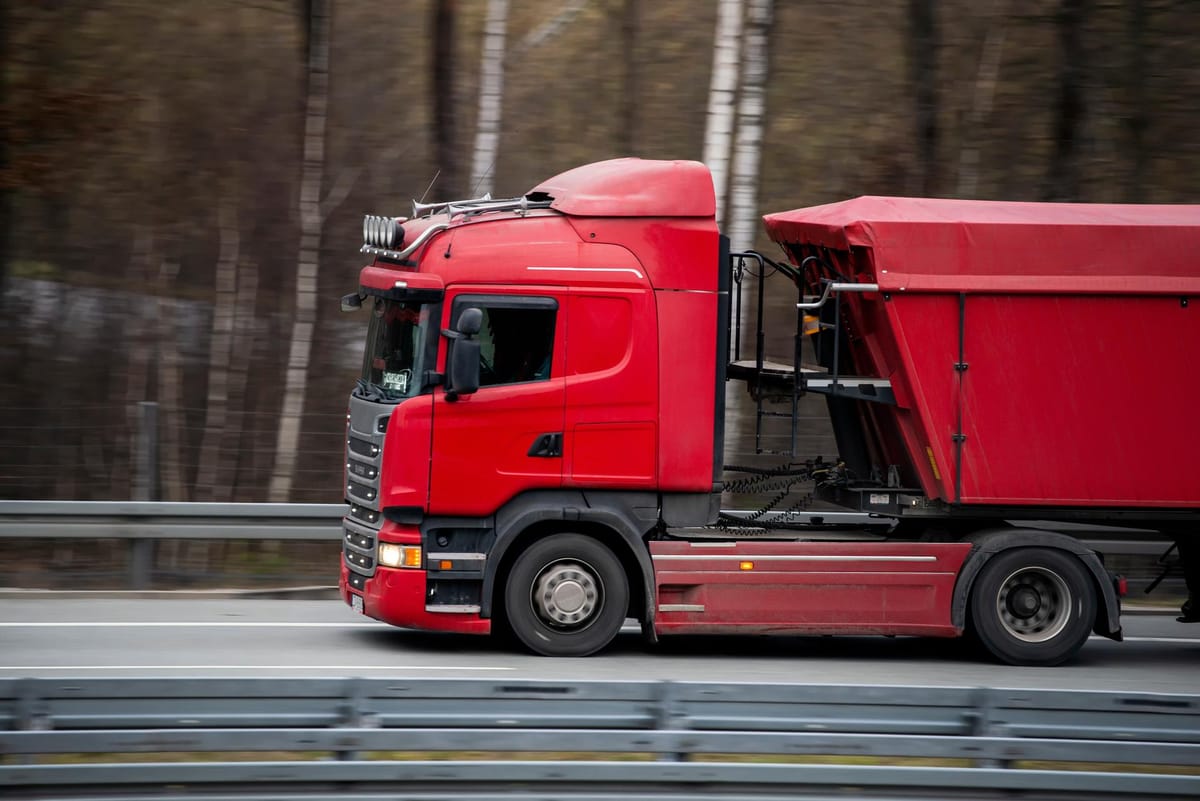Ret. FMCSA official says speed limiter rule is 'DOA'
Plus: Prep for high-priced trucks | What do women truckers want?

Insiders: A recent survey found that half respondent's fleets already used speed limiters, so why is the FMCSA still pushing for regulation? And Trump’s tax cut for overtime sounds great, but if truckers aren’t even getting paid for overtime, how can this help the industry? Let's take a closer look. -Bianca Prieto, Editor
Today's Lineup
🔷 California trucking company files for bankruptcy.
🔷 PepsiCo pilot would bring EVs, infrastructure to I-10.
🔷 Will the next president give truck drivers overtime pay?
🔷 Get ready for higher new truck prices.
🔷 What bigger brokers mean for carriers.
-written by Shefali Kapadia


Could the FMCSA's speed limiter rule be 'dead on arrival'?
Are you using the same safety tech as your fellow carriers? A recent survey found speed limiters were the most popular safety technology among fleet managers of medium- and heavy-duty trucks, with 51% of respondents saying they use the tech. Second most common were air disc brakes, followed by forward-facing, in-cab cameras.
Speed limiters have seen a big surge since 2021, when just 35% of fleets were using them. Off and on for almost a decade, the Federal Motor Carrier Safety Administration has considered mandatory speed limiters, with a proposed rule possible in May of next year.
But with many fleets already using speed limiters, many in the industry wonder if a regulation is even necessary. A retired FMCSA official even called the proposed rule “dead on arrival.”
Why this matters: The FMCSA’s role is to put forth rules that ensure the safest possible roads and operations. But in this instance, the private sector is ahead of the curve, adopting technology that improves safety for their fleets, their drivers and anyone else on the road.
Get more details from Trucking Info.

- CHAPTER 7: Calif trucking company files for bankruptcy
- LOW SALES: Used truck sales fell below expectations for August
- EV PILOT: PepsiCo, Microsoft, Maersk team up to electrify I-10
- TOP OF MIND: Parking, EV transition big concerns for carriers

Trump’s OT promise falls short without trucker pay reform
If elected president, Donald Trump has promised to remove income tax on overtime wages. The problem: The Fair Labor Standards Act of 1938 prevents millions of American truck drivers from earning overtime pay, despite often putting in more than 40 hours per week.
A solution – from whoever wins the election – could be to pass the Guaranteeing Overtime for Truckers Act, which entitles drivers to overtime pay. OOIDA and Teamsters have already voice their support for the bill.
Why this matters: Truckers often log long hours and rarely receive extra pay to reflect that. Updates to 90-year-old regulations could ensure that truck drivers earn fair pay for their work. (Newsweek)

THE SECRET SAUCE OF CUSTOMER SERVICE
"You can sell price, or you can sell service. And I don't like selling price." - Scotty Crisco, Oakley Trucking
Managers from Oakley Trucking discuss best practices for customer service, and how to build trust and relationships between carriers, owner-operators and shippers. Watch it here.

Prepare for truck prices to rise
New truck orders have been pretty slow for several months, reflecting the state of the freight market. But upcoming emissions regulations, starting with model 2027, could lead to a flurry of ordering ahead of the date. That demand, in turn, will likely drive up prices for new trucks.
Why this matters: Trucking leaders will need to weigh the state of the freight market with the possibility of higher equipment costs as they make decisions on new truck orders. (Truck Parts and Service)
What women want
Female truck drivers shared the amenities that are most important for their safety at a truck stop. At the top of the list is lighting; whether it’s parking, shower facilities or bathroom access, female drivers feel safest when the area is well-lit.
Why this matters: Women make up just 12% of the male-dominated truck driver field, and they often face challenges in the workplace. Ensuring their safety at truck stops is a critical step as fleets continue hiring and retaining female drivers. (Land Line Media)
RXO becomes the third-largest broker
RXO wrapped up its $1 billion acquisition of Coyote Logistics, making it the third-largest freight broker in North America. RXO bought the division from UPS to improve density, reduce deadheading, and reap the benefits of Coyote’s established carrier and customer network.
Why this matters: This is the latest example of consolidation in the freight brokerage industry, creating less competition for small fleets or owner-operators that work with brokers. On the flip side, the acquisition could give existing carriers access to a larger network with more freight to haul. (Transport Topics)

If you enjoy The Inside Lane newsletter, consider sharing it with a colleague. (Copy the URL here).
I'd love to hear from you. Submit your news, photos or just say hi by emailing me. Be safe out there!
Not yet a subscriber? Join here.





Comments ()